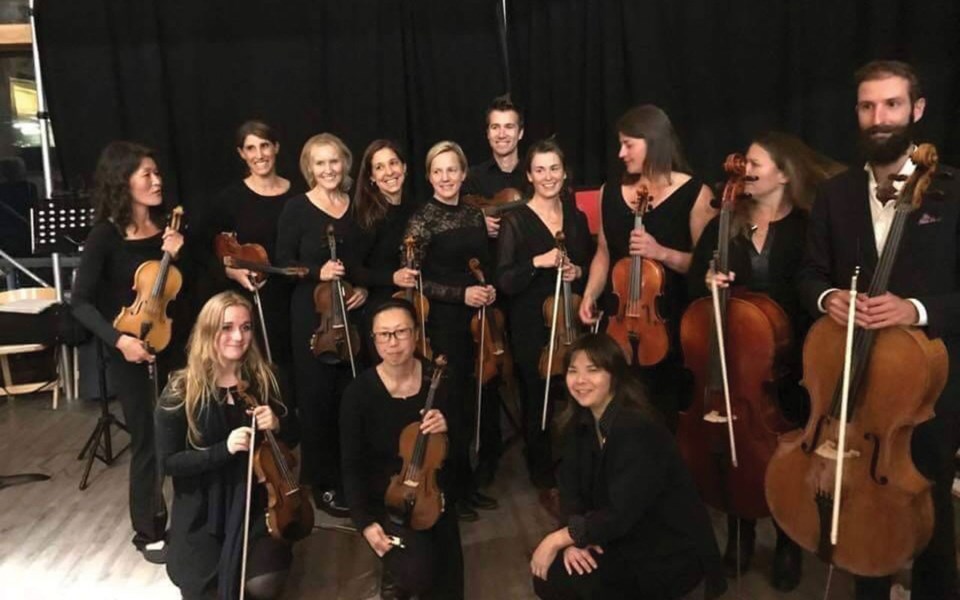Several weeks ago, as the world was watching the tragedy of COVID-19 unfold in Italy, we are also uplifted and mesmerized to hear physically isolated people singing from their balconies or playing music.
Said RAI Orchestra violinist Aldo Sebastián Cicchini from Milan at the time: "Music is not a cure for the disease, but it is maybe a cure for our hearts.
"I think that, in times like this, all the arts are very, very important. Right now, we need to survive, but surviving is not living. The beauty of art makes us united, and part of something that is bigger than us.
"Here in my building, every time I played, despite the distance between us, we felt closer. It's feels like we are a team, going forward together. And that's the power of music."
I have also found myself playing music at home as I work—something I never do. In the newsroom's online forum, where we all keep in touch every day, we often share songs, as we experience different feelings in our rather frantic new reality in isolation.
Yesterday, I received a text message with a video from violinist Yuko Iwanaga, founder of the Sea to Sky Orchestra, that shows her playing different parts of classical selections on different instruments, which were all stitched together so what you hear is a symphony from a mini-orchestra — to listen go here.
Wonderful.
And consider the incredible support music is creating for, not just our communities in the Sea to Sky corridor, but globally.
On Friday, April 17, The Hairfarmers held another virtual concert to raise spirits and money for local food banks—another success. Incredibly, they have raised over $100,000 in just a few weeks through these toe-tapping shows (done with physical distancing in mind, of course).
This past weekend, the idea was taken to a global level with the One World: Together at Home virtual concert featuring some of the biggest names in music. Put together by the United Nations, the World Health Organization (WHO) and anti-poverty organization Global Citizen, it aimed to raise money to equip healthcare workers around the world in the fight against coronavirus. So far, the initiative has raised more than US$127 million.
My artistic friends are taking time to paint and draw and share their creations, and I am loving that. In my own way, I am also being creative, though my heart finds its release in words.
Music, art and culture are fundamental parts of Canadian society and I would say that, here in Whistler, our connection to these forms of expression is probably deeper than in many places.
With World Art Day just past on April 15 (en.unesco.org/commemorations/worldartday), and the pandemic creating a frame around art and expression unknown in generations, it's time to consider the value art, in all its many forms, brings to us and think about what support of this sector could look like post-coronavirus. As with so many things—long underfunded and taken for granted by many—the pandemic might be offering us up some lessons about art and culture, for Canada, B.C., and Whistler.
But, while we are being inspired by those who pursue art in all its many forms right now, we cannot forget that those who work in this field are likely being impacted disproportionately when it comes to surviving financially.
Recently, the Canada Council for the Arts launched a survey to better understand the needs of the professional arts sector in overcoming the COVID-19 crisis, sending it out to over 30,000 of its clients.
In the first two days of the survey, it heard back from 7,500 artists, groups or organizations, and learned that: No fields of practice supported by the Canada Council will be untouched by the crisis; certain aspects of the sector remain at risk, for example, organizations relying on self-employed professionals and organizations with high non-payroll, fixed costs; but that 61 per cent believed the arts will get through the pandemic crisis with the support of the federal government's emergency aid measures.
Last week, the federal government announced it would give $500 million to Canada's arts, sports and cultural sectors—though its not clear how it will be divvied up.
"We need our artists to continue to make us dream, particularly in dark times," said Prime Minister Justin Trudeau at his morning press briefing on April 17.
It's a welcome recognition. There have been many articles written about the amazing creativity of our cultural partners and how this is helping us survive isolation and physical-distancing measures, and it is uplifting to read these.
But if there is a growing recognition that humans can't survive this type of threat without artist expression, then what should this mean for life post-pandemic?
I have read several times about how Shakespeare wrote King Lear and Macbeth while in isolation to escape the plague, but let's remember he had patrons to support him.
Why should we expect our creatives to be able to express themselves if their energy is being spent on worrying about how the next bill gets paid or how they will feed and house their kids?




